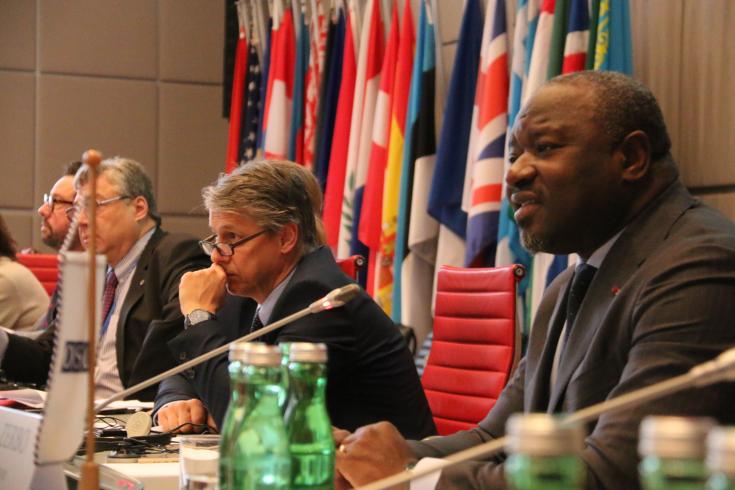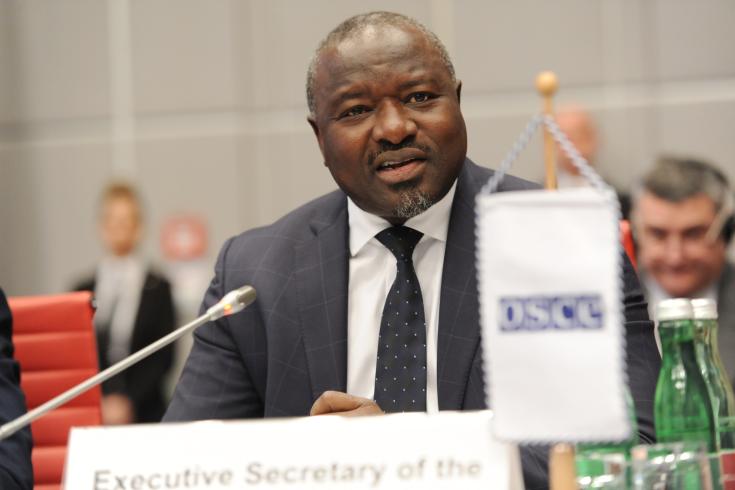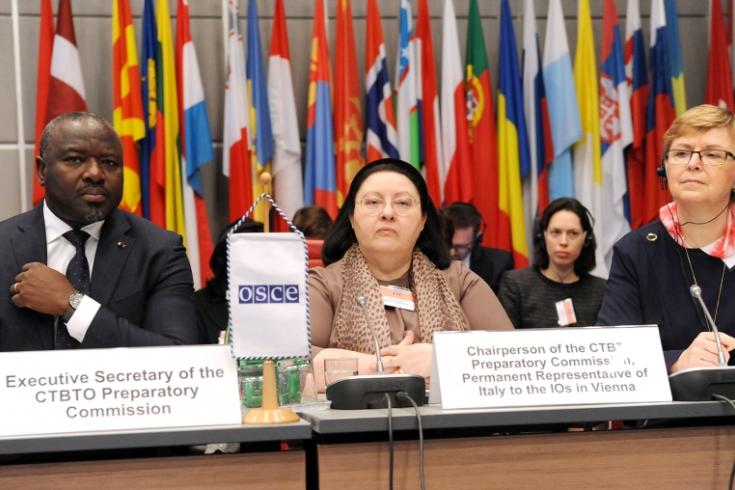February, the month of CTBTO-OSCE cooperation on disarmament and non-proliferation
The month of February has been an eventful one, where the Organization for Security and Co-operation in Europe (OSCE) and CTBTO teamed up for three events to provide a platform for dialogue on security issues spanning from Vancouver to Vladivostok.
The OSCE Parliamentary Assembly’s (PA) Winter Session took place on 22-23 February at the Hofburg in Vienna, Austria. On Friday the 23rd, CTBTO Executive Secretary Lassina Zerbo delivered opening remarks at a Special Debate on “Arms Control, Disarmament and Non-proliferation: Challenges and Opportunities for the OSCE Area” during the meeting of the General Committee on Political Affairs and Security. Addressing key issues in the current climate on disarmament and non-proliferation, Zerbo noted that “the OSCE Parliamentary Assembly, as a facilitator with direct links to civil society, has a strong potential to support the CTBT” by urging for its ratification. He called on parliamentarians to already do this at the upcoming Non-Proliferation Treaty (NPT) Preparatory Committee in Geneva in April, at the UN High-Level Conference on Nuclear Disarmament in May, and the 2020 NPT Review Conference.
Zerbo highlighted the importance of the CTBTO’s verification regime by stating, “today, you can be confident that even if a country conducting a nuclear test does not announce it, our International Monitoring System (IMS) will ensure that the international community gets reliable, objective and verifiable data about the situation on the ground in real time.”
In his concluding remarks, the Executive Secretary emphasized that real security means more than just the absence of nuclear war. It means that “nuclear tests are comprehensively banned, nuclear disarmament as a long term goal is no longer unachievable, and that tensions arising out of the current global nuclear order are minimized to zero.”
View OSCE's Photo Flickr album covering the Winter Session.

We are grateful to the OSCE participating States for being strong supporters of the CTBTO. Today, 183 countries have signed the Treaty. 166 States have ratified it. All OSCE participating States have signed the Comprehensive Nuclear-Test-Ban Treaty. They were among the first ones to do so. All but one have ratified it.
Earlier this month, 50 young women professionals from OSCE participating States were introduced to the work of CTBTO. They were in Vienna on a week-long scholarship programme organized by the OSCE and the United Nations Office for Disarmament Affairs (UNODA). The idea behind the scholarship was for participants to gain an understanding of the challenges in disarmament and non-proliferation-related issues, the roles of different institutions active in this field, the relationship between disarmament and development, and technologies related to disarmament and non-proliferation.
The young professionals experienced a half-day interactive programme in the Vienna International Centre to learn about the Comprehensive Nuclear Test Ban Treaty (CTBT) and the technologies used for verification. After an introductory session and Q&A, the group was involved in an interactive game based on real-life recordings of sounds picked up by CTBTO hydroacoustic stations. This was followed by a tour of the CTBTO, including an introduction to the interactive OMNI Globe, which visualises CTBTO’s global verification network and helps foster understanding of its use and benefit. The CTBTO tour concluded with a visit to seismic and infrasound test bed facilities, which showcased the real-life technology used at IMS stations around the world.
On 7 February, under the Slovakian Chairmanship, the OSCE held a security dialogue on the CTBT in the Forum for Security Co-operation (FSC) in the Hofburg in Vienna. The Forum discussed UN Security Council Resolution 1540 on preventing the proliferation of weapons of mass destruction, and gave voice to international actors, such as the OSCE and CTBTO, that are supporting the implementation of the resolution. Italian Ambassador Maria Assunta Accili Sabbatini, Chair of the Preparatory Commission for the CTBT, said that the “CTBT is a major building block of the current multilateral disarmament and non-proliferation architecture”.
Executive Secretary Zerbo added that “the CTBT most certainly constitutes a firm basis for convergence on the topic of global nuclear non-proliferation and disarmament. I am convinced it is the only basis of convergence for the time being.”
He concluded that through cooperation, results are achieved.

Photo courtesy of OSCE

The CTBTO and the OSCE share the same commitment to multilateralism in dealing with security issues. The CTBT is a powerful multilateral instrument that has solidified the no-nuclear-testing norm and increased transparency among the world’s nations.
26 Feb 2018
